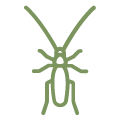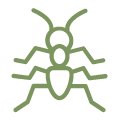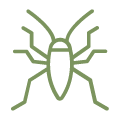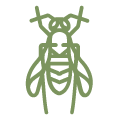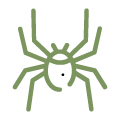Identification Tips About Common Pests
Different types of pests have unique characteristics that differentiate them from other organisms.
By knowing how to identify pests, you can take steps to prevent them from infesting your residential and commercial properties as well as causing health problems and spreading diseases.
However, for a definitive identification, especially with pests that have many similar-looking species, consulting a professional pest control company might be necessary as they possess the expertise and equipment to manage pests safely and effectively.

Various Types of Pests
Why Is it Important to Control Pests?
Effective pest management is vital for several reasons that span health, safety, and economic considerations. Here’s a few reasons:
Many pests, such as mosquitoes, ticks, and rodents, can transmit diseases to humans. For instance, mosquitoes can spread malaria and Zika virus, while ticks can transmit Lyme disease.
Insects like bed bugs, fleas, and certain spiders can bite humans, causing discomfort, allergic reactions, or, in rare cases, serious health complications.
Infestations can lead to significant food losses, either from consumption by pests or contamination that makes foodstuffs inedible.
Pests can devastate crops, leading to reduced yields and economic losses for farmers. Additionally, they can harm livestock.
Some pests, when introduced to new environments, can outcompete and displace native species, leading to reduced biodiversity. Effective pest control can help mitigate this impact.
Infestations can lead to secondary problems, like mold growth due to insect waste or moisture issues resulting from pest activity.
Pests can damage gardens, lawns, and other aesthetic aspects of properties. They also lead to discomfort when they invade living spaces.
Pests like cockroaches and dust mites produce allergens that can trigger asthma attacks and allergic reactions in sensitive individuals.
Pests like rats, mice, and certain insects can contaminate food sources, rendering them unsafe for consumption.
Some pests, notably termites and carpenter ants, can cause significant structural damage to buildings. Rodents can chew through wires, insulation, and other essential components.
Infestations can reduce a property’s value, making it challenging to sell or rent.
Knowing that one’s living or working space is free from pests can provide significant peace of mind and create a more comfortable environment.
Businesses, especially those in the food and hospitality sectors, can face legal consequences, fines, or shutdowns if pest infestations are not adequately managed.
Why Choose Our Pest Control Company?
With more than 20 years of experience, Perfect Pest Solutions local exterminators specialize in inspecting, preventing, and treating pest infestations in various settings, including homes, businesses, and industrial areas.
Our pest control services are pet friendly, and fully guaranteed; We only use approved products, the pricing is competitive and you can book your free pest inspection online.
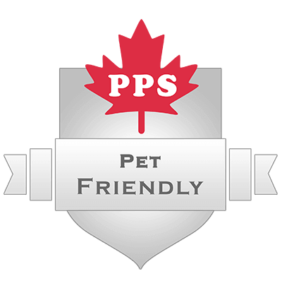

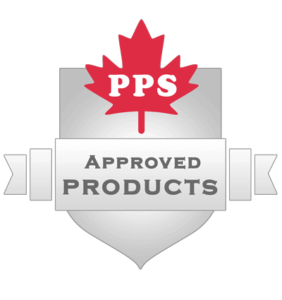

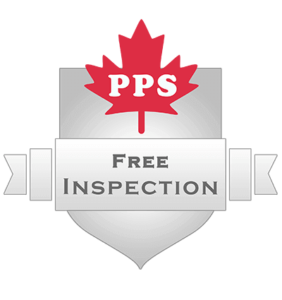

Frequently Asked Questions
The most common household pests vary by region but typically include ants, cockroaches, rodents, spiders, and bedbugs.
Regular cleaning, proper food storage, sealing cracks and crevices, managing moisture, and regular inspections can help prevent most pest infestations.
While not all pests pose direct health risks, many can carry diseases, cause allergies, or exacerbate asthma symptoms. For instance, rodents can carry Hantavirus, while cockroach droppings can trigger asthma in some individuals.
Depending on the severity and type of infestation, DIY treatments can be effective. However, for persistent or large-scale infestations, it’s recommended to consult with professional pest control services.
Not all pesticides are safe for pets and children. It’s crucial to read and follow label instructions carefully and consider non-toxic or natural alternatives when possible.

